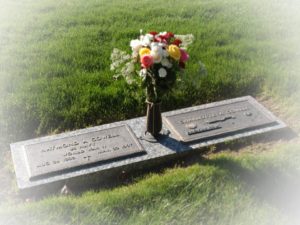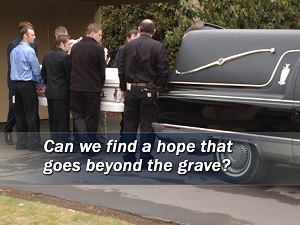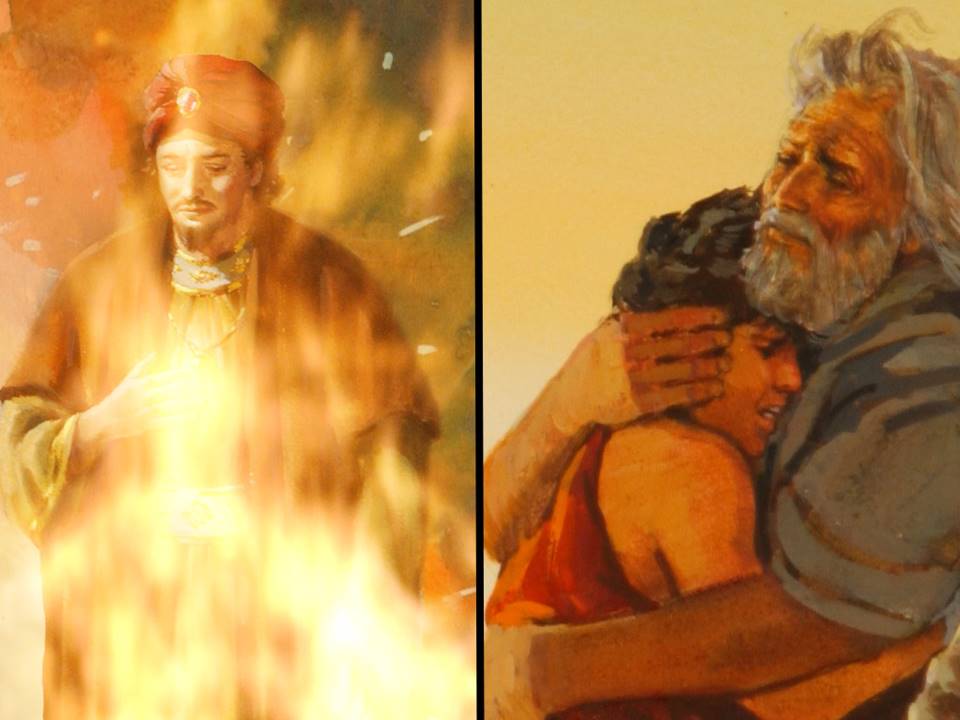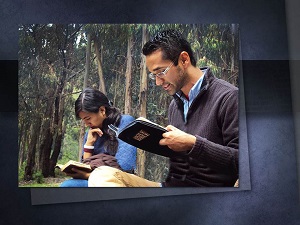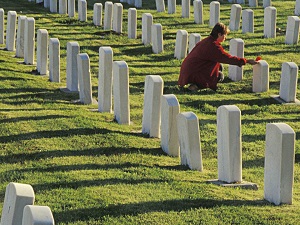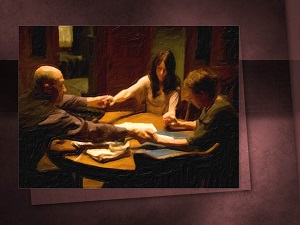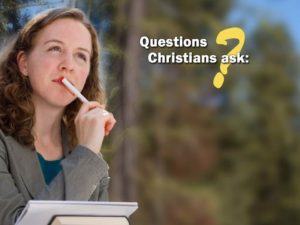
"to be absent from the body and to be present with the Lord"

Samuel Smith
23 Jan'19
5
LESSON 6
TO BE ABSENT FROM THE BODY AND TO BE PRESENT WITH THE LORD: AN EXPOSITION ON PAUL'S WORDS IN 2 CORINTHIANS 5:8
You are welcome to another edition of Insights from God's Word, a Bible study programme that is committed to sharing God's Word by allowing the Bible to speak for itself.In this edition, we continue with our series on The Truth About Death. In this study, I want us to consider the topic: "...to be absent from the body and to be present with the Lord: An exposition on Paul's words in 2 Corinthians 5:8. The complete message in this text reads: "We are confident, I say, and willing rather to be absent from the body, and to be present with the Lord" (
1. A RECAP OF KEY POINTS FROM OUR PREVIOUS STUDIES
From our previous studies in this series on death, we have gained the following biblical foundations:i) The human being is composed of two elements: the dust of the ground and breath of life (
ii) The dead know nothing (
iii) The dead are not in paradise, hell, purgatory, limbo, or some spirit world. The dead rest or sleep in their graves awaiting one of two resurrections (
(For a detailed biblical explanation of the three points above, please request for our previous studies: 1) What happens to man after death and 2) When a person dies, where does he go? through any of our WhatsApp Numbers at the end of the lesson).
2. THE SCRIPTURE CANNOT BE BROKEN
Friends, fromFrom this principle, we should expect that the interpretation of the key text we are considering in this study (that is;
The popular interpretation in regard to the above text within Christendom is that the moment a faithful child of God dies, his spirit departs from the body to be with the Lord in paradise. But beloved, this teaching is contrary to the principle of the unity of Scripture we have just gone through. Our previous knowledge on the state of the dead clearly emphasize that the dead are not conscious of anything (
Friends, since the popular interpretation of
3. PETER'S COUNSEL ON THE INTERPRETATION OF PAUL'S LETTERS
Friends, one thing we need to understand is that Paul's letters are tough. Even Peter, a contemporary of the apostle Paul had this to say in relation to Pauline epistles:4. THE PASSAGE OF CONTENTION (2 CORINTHIANS 5:1-9 )
Friends, for us to obtain a clear understanding of difficult verses of Scripture, we need to consider among other things the entire passage in which the difficult text is positioned. And so in this segment of our study, we are going to consider the entire passage of 5:1 "For we know that if our earthly house of this tabernacle were dissolved, we have a building of God, an house not made with hands, eternal in the heavens."
Key Explanation: If we lose this physical body (earthly house or tabernacle) in death, there is an eternal body or house that God has prepared for us.
5:2 "For in this we groan, earnestly desiring to be clothed upon with our house which is from heaven:"
Key Explanation: We desire to have the eternal body that God has prepared for us.
5:3 "If so be that being clothed we shall not be found naked."
Key Explanation: Once we have this eternal body, we will be free from death. It is important to note that the Scripture uses the word naked in relation to physical birth and death. Notice how the word NAKED is used in relation to birth and death in the following texts:
"And said, Naked came I out of my mother's womb, and naked shall I return thither: the LORD gave, and the LORD hath taken away; blessed be the name of the LORD" (
"As he came forth of his mother's womb, naked shall he return to go as he came, and shall take nothing of his labour, which he may carry away in his hand" (
Thus friends, the combined explanation of the texts in the verses 2 and 3 is that once we obtain the eternal heavenly body from God, we will be free from the agony of physical death.
5:4 "For we that are in this tabernacle do groan, being burdened: not for that we would be unclothed, but clothed upon, that mortality might be swallowed up of life."
Key Explanation: While we continue to possess this body, we have cause to worry, not because of physical death, but rather our concern is to obtain the immortal body from God which is not subject to death.
5:5 "Now he that hath wrought us for the selfsame thing is God, who also hath given unto us the earnest of the Spirit."
Key Explanation: The One who has given us this promise of eternal life is God.
5:6 "Therefore we are always confident, knowing that, whilst we are at home in the body, we are absent from the Lord:"
Key Explanation: To be at home in the body basically means to continue to possess the physical nature which is subject to death. While we continue to possess this physical body, we are physically absent from the Lord.
From
15:51 Behold, I shew you a mystery; We shall not all sleep, but we shall all be changed,
15:52 In a moment, in the twinkling of an eye, at the last trump: for the trumpet shall sound, and the dead shall be raised incorruptible, and we shall be changed.
15:53 FOR THIS CORRUPTIBLE MUST PUT ON INCORRUPTION, AND THIS MORTAL MUST PUT ON IMMORTALITY.
15:54 So when this corruptible shall have put on incorruption, and this mortal shall have put on immortality, then shall be brought to pass the saying that is written, Death is swallowed up in victory.
15:55 O death, where is thy sting? O grave, where is thy victory?"
(
The verses 7 and 8 of our key passage read:
"5:7 (For we walk by faith, not by sight)
5:8 We are confident, I say, and willing rather to be absent from the body, and to be present with the Lord."
Key Explanation: To be absent from the body basically means to leave behind our physical bodies in death. Since the righteous dead do not know anything (
The verse 9 of our key passage reads:
5:9 "Wherefore we labour, that, whether present or absent, we may be accepted of him."
Key Explanation: Thus, we take note of our works, so that whether we are alive or dead, we may be accepted of Him at His coming. Beloved, it is important to notice that if absent in verse 9 means one is already with Christ in paradise, then it suggests that Paul's latter words (we may be accepted of Him) does not make sense as such people in paradise have already been accepted and rewarded by God already.
5. A SECOND PASSAGE OF CONTENTION (PHILIPPIANS 1:21-25 )
A similar passage in Scripture that parallels our key passage in this study is found in 1:22 But if I live in the flesh, this is the fruit of my labour: yet what I shall choose I wot not.
1:23 For I am in a strait betwixt two, having a desire to depart, and to be with Christ; which is far better:
1:24 Nevertheless to abide in the flesh is more needful for you.
1:25 And having this confidence, I know that I shall abide and continue with you all for your furtherance and joy of faith;"
(
Beloved, the apostle Paul was not suggesting by the passage above (especially the statement in verse 23: "having a desire to depart, and to be with Christ") that he was going to be with Christ immediately after his death. The learned apostle knew from the Old Testament Scriptures that the dead (both righteous and wicked) know nothing (
In fact, the apostle Paul actually made it clear that the Lord will reward him for his good works not when he died but when the Lord appeared the second time. From
Friends, I want us to do a little bit of thinking here. You see, if the righteous went to Paradise or heaven to be with the Lord immediately after death, then it means they have already received their reward. But the Bible makes it clear that the righteous as well as the wicked receive their reward when Christ appears the second time. From the words of Christ in
6. WHEN WILL THE RIGHTEOUS BE WITH THE LORD?
Friends, the Bible clearly teach that righteous dead will be with the Lord in heaven only after they are rewarded with the precious gift of immortality at the second coming of Christ. Let's consider some passages of Scripture that shed light on this important point:i) From
4:14 For if we believe that Jesus died and rose again, even so them also which sleep in Jesus will God bring with him.
4:15 For this we say unto you by the word of the Lord, that we which are alive and remain unto the coming of the Lord shall not prevent them which are asleep.
4:16 For the Lord himself shall descend from heaven with a shout, with the voice of the archangel, and with the trump of God: and the dead in Christ shall rise first:
4:17 Then we which are alive and remain shall be caught up together with them in the clouds, to meet the Lord in the air: AND SO SHALL WE EVER BE WITH THE LORD.
4:18 Wherefore comfort one another with these words."
(
ii) From the popular passage of
From this passage in
The apostle Paul summarizes what I'm trying hard to point out with these beautiful words:
7. WHAT ABOUT THE THIEF ON THE CROSS?
At this point, I believe someone is pondering over the question; What about the account of the thief on the cross as recorded in8 a) A GOD OF THE LIVING
In answer to a trick question by the Sadducees on the resurrection of the dead (see20:35 But they which shall be accounted worthy to obtain that world, and the resurrection from the dead, neither marry, nor are given in marriage:
20:36 Neither can they die any more: for they are equal unto the angels; and are the children of God, being the children of the resurrection.
20:37 Now that the dead are raised, even Moses shewed at the bush, when he calleth the Lord the God of Abraham, and the God of Isaac, and the God of Jacob.
20:38 For he is not a God of the dead, but of the living: for all live unto him."
(
In contrast to the popular teaching that is making rounds in Christendom that the spirits of the righteous dead reside in the presence of God, Scripture actually make it clear that it is the living who reside in the presence of God in heaven. The Bible records the account of some few persons who were given the precious privilege to be taken into heaven ahead of the general provision that God has made for the righteous at the end of time (
i) ENOCH
5:22 And Enoch walked with God after he begat Methuselah three hundred years, and begat sons and daughters.
5:23 And all the days of Enoch were three hundred sixty and five years.
5:24 AND ENOCH WALKED WITH GOD: AND HE WAS NOT; FOR GOD TOOK HIM."
(
Friends, we learn from the books of Genesis and Hebrews that Enoch did not see death, for God took him. Enoch now lives in the presence of God in heaven. It is important for us to note that Enoch was alive before he was taken to heaven.
ii) ELIJAH
2:10 And he said, Thou hast asked a hard thing: nevertheless, if thou see me when I am taken from thee, it shall be so unto thee; but if not, it shall not be so.
2:11 And it came to pass, as they still went on, and talked, that, behold, there appeared a chariot of fire, and horses of fire, and parted them both asunder; AND ELIJAH WENT UP BY A WHIRLWIND INTO HEAVEN.
2:12 And Elisha saw it, and he cried, My father, my father, the chariot of Israel, and the horsemen thereof. And he saw him no more: and he took hold of his own clothes, and rent them in two pieces."
(
iii) MOSES
34:2 And all Naphtali, and the land of Ephraim, and Manasseh, and all the land of Judah, unto the utmost sea,
34:3 And the south, and the plain of the valley of Jericho, the city of palm trees, unto Zoar.
34:4 And the LORD said unto him, This is the land which I sware unto Abraham, unto Isaac, and unto Jacob, saying, I will give it unto thy seed: I have caused thee to see it with thine eyes, but thou shalt not go over thither.
34:5 So Moses the servant of the LORD died there in the land of Moab, according to the word of the LORD.
34:6 And he buried him in a valley in the land of Moab, over against Bethpeor: but no man knoweth of his sepulchre unto this day.
34:7 And Moses was an hundred and twenty years old when he died: his eye was not dim, nor his natural force abated."
(
Friends, the text above clearly tells us that the power or victory that death seemed to have over the human race was broken at the death of Moses. Death had reigned right from Adam's time over the children of men. But somehow, death did not reign over the body of Moses because this humble servant of God was resurrected by Christ and taken into the presence of God in heaven.
You might say how do you know this for sure? Well beloved, the Bible gives us further light into the case of Moses. From the book of Jude, we read the following in relation to the death of Moses: "Yet Michael the archangel, when contending with the devil he disputed about the body of Moses, durst not bring against him a railing accusation, but said, The Lord rebuke thee" (
Beloved, something unprecedented happened when Moses died. Satan, through the ages had claimed all the dead right from Adam as his captives. He had accused them before the universe as not deserving of life because of the sins they had committed in their lifetime. At the death of Moses, the devil thought he had got another captive. However, Michael (who is actually Jesus Christ; see
8 b) ELIJAH AND MOSES ON THE MOUNT OF TRANSFIGURATION
Friends, there is another proof in Scripture that shows that Elijah and Moses are alive in heaven today. We find this account in the gospels of Luke and Matthew. From9:29 And as he prayed, the fashion of his countenance was altered, and his raiment was white and glistering.
9:30 AND BEHOLD, THERE TALKED WITH HIM TWO MEN, WHICH WERE MOSES AND ELIAS:
9:31 WHO APPEARED IN GLORY, AND SPAKE OF HIS DECEASE WHICH HE SHOULD ACCOMPLISH AT JERUSALEM.
9:32 But Peter and they that were with him were heavy with sleep: and when they were awake, they saw his glory, and the two men that stood with him.
9:33 And it came to pass, as they departed from him, Peter said unto Jesus, Master, it is good for us to be here: and let us make three tabernacles; one for THEE, and one for MOSES, and one for ELIAS: not knowing what he said.
9:34 While he thus spake, there came a cloud, and overshadowed them: and they feared as they entered into the cloud.
9:35 And there came a voice out of the cloud, saying, This is my beloved Son: hear him.
9:36 And when the voice was past, Jesus was found alone. And they kept it close, and told no man in those days any of those things which they had seen."
(
Beloved, the destiny of the entire human race was centred on the atoning death of Christ that He should accomplish at Jerusalem. Should the Son of God refuse to go through with His sacrifice, the seed of Adam was doomed to destruction. Moses and Elijah who had been given advance passport to heaven pleaded with Christ on behalf of the human race. Should Christ refuse to go through this sacrifice, even their own stay in heaven was to be cut short. This is because no one enters into the city of God on their own merits but rather on the merits of Christ's sacrifice at Calvary.
On the mount of transfiguration, Elijah and Moses represented the two classes of people who will enter the city of God because of what Christ had done for the human race. Elijah is a figure of all those who will live to see Jesus come the second time. Like Elijah, these saints of God will be translated into heaven without seeing death. Moses on the other hand represents all the saints of God who will be resurrected from the dead, and taken into the city of God in heaven (see
Thus friends, when Christ raised Moses from the dead on the mountain of Nebo, He clearly made the devil to understand that through His supreme sacrifice for mankind, all those who believed in Him will one day be resurrected and taken into the city of God just like His servant Moses. Moses, even though experienced death, is one of the few humans who live in the presence of God today. And beloved, it is important for us to note that this humble servant of God was resurrected before entering into the city of God in heaven.
iv) THE RESURRECTED SAINTS
27:51 And, behold, the veil of the temple was rent in twain from the top to the bottom; and the earth did quake, and the rocks rent;
27:52 AND THE GRAVES WERE OPENED; AND MANY BODIES OF THE SAINTS WHICH SLEPT AROSE,
27:53 AND CAME OUT OF THE GRAVES AFTER HIS RESURRECTION, AND WENT INTO THE HOLY CITY, AND APPEARED UNTO MANY."
(
Friends, these saints ascended with Christ into heaven after our Saviour's forty days sojourn here with His disciples. Our Lord took them to heaven to present them to the Father as trophies or first fruits of the great harvest that will accompany Him later on into the city of God as a result of His sacrifice for mankind. It is important to once again note that these saints who accompanied Christ to heaven were resurrected before they could ascend with the Lord into the city of the living God.
Beloved, the above examples all go a long way to prove the point that it is only the living that dwell in the presence of God. Christ rightly stated that our God is not a God of the dead, but of the living (
9. At this point in our study, an important question that begs for an answer is this: "How do we reconcile Christ's words in
The apostle John records Christ's words in
3:12 If I have told you earthly things, and ye believe not, how shall ye believe, if I tell you of heavenly things?
3:13 And no man hath ascended up to heaven, but he that came down from heaven, even the Son of man which is in heaven."
(John 3:11-13)
You see friends, even though Enoch, Elijah and Moses were taken to heaven by God (review
10. Friends, from what we have studied so far from the Bible, it is clear that the popular teaching that the spirits of the righteous dead go to reside in the presence of the Lord in paradise or heaven is not based on the Bible. It is clear that the texts in
Exhortation: From Paul’s first epistle to the Corinthians, we read the following clear words in relation to the resurrection of the dead:
15:13 But if there be no resurrection of the dead, then is Christ not risen:
15:14 And if Christ be not risen, then is our preaching vain, and your faith is also vain.
15:15 Yea, and we are found false witnesses of God; because we have testified of God that he raised up Christ: whom he raised not up, if so be that the dead rise not.
15:16 For if the dead rise not, then is not Christ raised:
15:17 And if Christ be not raised, your faith is vain; ye are yet in your sins.
15:18 THEN THEY ALSO WHICH ARE FALLEN ASLEEP IN CHRIST ARE PERISHED.
15:19 If in this life only we have hope in Christ, we are of all men most miserable."
(
Thought Question: How can Paul refer to the righteous dead as perished if they were actually with Christ in Paradise?
Stay blessed and keep shining for King Jesus.
Maranatha!
Powered by White Throne Ministries



